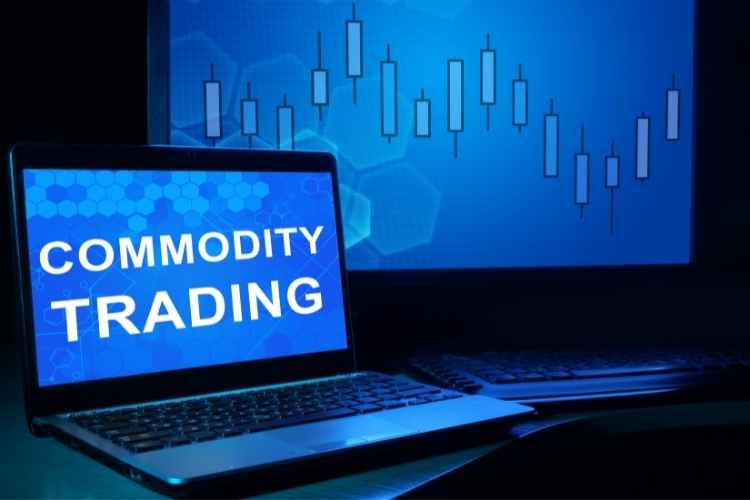Commodities trading is the buying and selling of goods, products or materials. The term can refer to the buying and selling of agricultural products, metals, energy products or any other type of physical product. In most cases, traders buy and sell these commodities with the hope of making a profit from price changes.
Commodities are often traded on an open market, where buyers and sellers agree on a price. Transactions can take place through various methods, including over-the-counter deals or on an exchange, much like stocks – read more here.
The history of commodities trading can be traced back to ancient civilizations. However, modern-day commodity trading began in earnest during the 18th century by establishing organised exchanges for futures contracts. There are several different ways to trade commodities, including spot markets, forwards and futures contracts.
How does commodities trading work?
There are two main ways to trade commodities: the spot market and the futures market.
The spot market is where traders buy and sell commodities for immediate delivery. It means that the buyer takes physical possession of the product, delivering it immediately. On the other hand, the futures market is where traders buy and sell contracts to produce a commodity at a later date. These contracts are usually traded over an exchange, such as the Chicago Mercantile Exchange (CME).
Several factors to consider
When trading commodities, there are several different factors that traders need to consider.
These include:
- The supply and demand for the commodity
- The price of related products or materials
- The geopolitical environment
- The weather
The basic process of commodities trading is relatively simple. Traders buy commodities when they believe the price will go up and sell when they think the price is going to go down. To make a profit, traders must predict price movements correctly.
Several factors can affect commodity prices, including supply and demand, economic indicators, geopolitical events and weather conditions. Traders use various tools and strategies to analyse these factors and make informed predictions about future commodity prices.
What are the benefits of commodities trading?
There are several benefits associated with commodities trading. These include:
Exposure to global markets
Commodities can be traded on international exchanges, giving traders access to a wide range of markets.
Hedging against price risk
Commodities can be used to hedge against price risk. For example, if a trader is exposed to the price of oil, they could purchase a futures contract to protect themselves from any potential price movements.
Liquidity
There is a high level of liquidity in the commodities market, which means that traders can enter and exit positions quickly and easily.
Diversification
By trading commodities, traders can reduce their overall portfolio risk by diversifying their investments into different markets.
What are the risks of commodities trading?
While there are several benefits associated with commodities trading, several risks are also. These include:
Price volatility
Commodity prices can be volatile, which can lead to significant losses if a sudden price movement catches out a trader.
Market manipulation
There is always the risk of market manipulation, leading to significant losses for traders.
Liquidity issues
In some cases, there may not be sufficient liquidity in the market to enter or exit a position quickly and easily.
Counterparty risk
When trading futures contracts, the trader relies on the other party to honour the contract. If they do not, the trader could face significant losses.
How do I get started in commodities trading? The best way to get started in commodities trading is to attend a training course or seminar. Several different courses are available, which can teach you the basics of commodities trading.
Bottom line
Alternatively, you can sign up for a trading account with a broker that offers commodities trading. Brokers will provide you with access to several different markets and allow you to trade contracts for difference (CFDs), which give you exposure to the price movements of commodities without having to take physical possession of the product.

